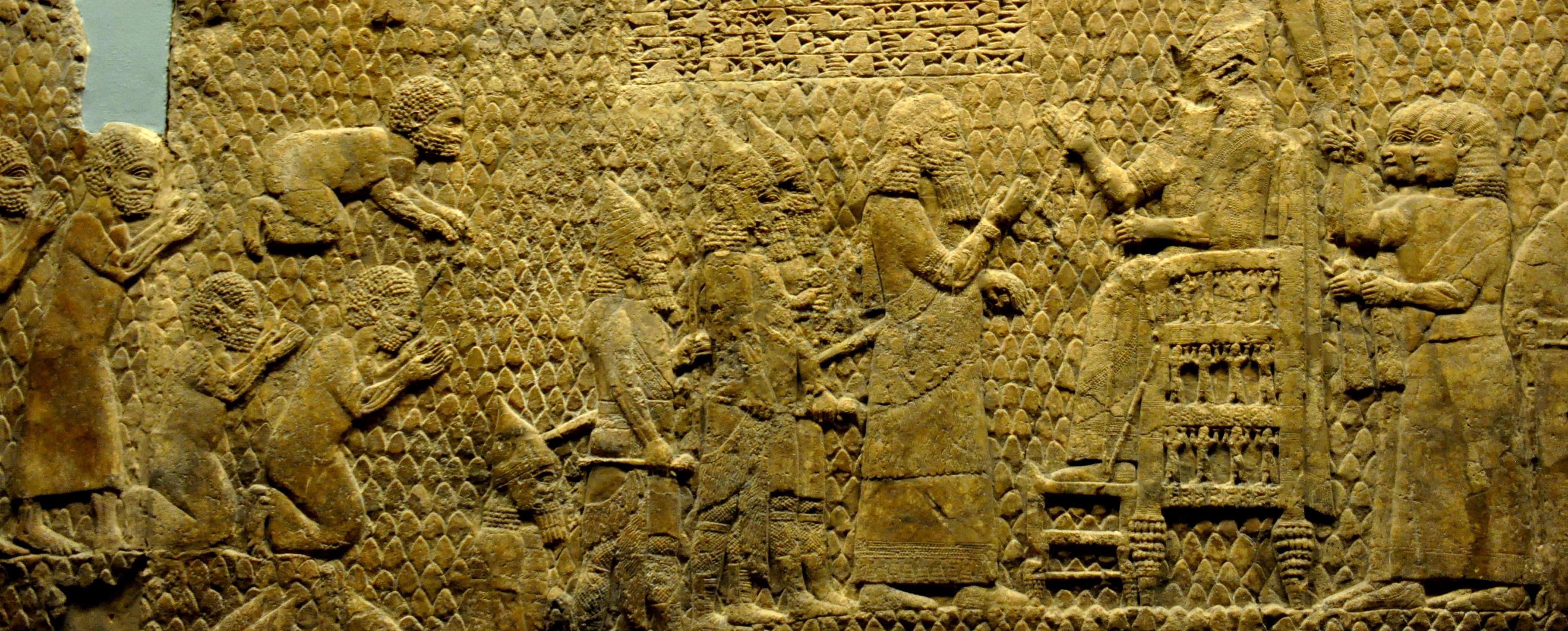Take Root
The great prophet of Israel was Isaiah, and his great moment was the invasion of Assyria. In the early first millennium before Christ, Assyria was the rising force in the middle east. They were a cruelly efficient force. They pioneered the use of cavalry and siege warfare. Conquered peoples were deported en masse around the empire, weakening any sense of cultural identity.
In 722 BC, they took Samaria, and 10 of the 12 tribes of Israel disappeared to history. The writer of 2 Kings makes clear that “this happened because they had not obeyed the Lord their God, but had violated his covenant” (2 Kings 18:12). From that point on the Samarians, or Samaritans, would be an ethnically diverse group, made of those left behind and those resettled from elsewhere. They would be at odds with the remnant of Isreal, Judah.
By 701 BC, Sennacherib was closing in on Judah’s capital, Jerusalem. On his way he had laid siege to the city of Lachish, boasting of his triumph in a relief now on display at the British Museum. In his Annals, Sennacherib boasted of trapping the Judean king “like a caged bird”. Now he sent his commander to taunt the Judeans. “On whom are you depending, that you rebel against me? … Come now, make a bargain with my master, the king of Assyria: I will give you two thousand horses–if you can put riders on them!” (2 Kings 18:19-25). The siege of Jerusalem would turn on the source of Judah’s confidence.
Judah’s king at the time was Hezekiah, one of the better of a generally dismal set of kings that had succeeded Rehoboam. By contrast to the Israelites, and to his predecessors, he “trusted in the Lord, the God of Israel” (2 Kings 19:5). “He did what was right in the eyes of the Lord, just as his father David had done. He removed the high places, smashed the sacred stones and cut down the Asherah poles.” (2 Kings 19:3-4).
Isaiah was one of Hezekiah’s advisors. Isaiah told the king:
This is what the Lord says: Do not be afraid of what you have heard–those words with which the underlings of the king of Assyria have blasphemed me. Listen! When he hears a certain report, I will make him want to return to his own country, and there I will have him cut down with the sword. (2 Kings 19:6,7)
The report duly came: that the king of Cush was advancing on Assyria. Sennacherib returned to Assyria, though the Lord gave him additional motivation: “That night the angel of the Lord went out and put to death a hundred and eighty-five thousand in the Assyrian camp” (2 Ki 19:35) Then, “One day, while he was worshipping in the temple of his god Nisrok, his sons Adrammelek and Sharezer killed him with the sword, and they escaped to the land of Ararat. And Esarhaddon his son succeeded him as king.” (2 Kings 19:37)
Sennacherib’s account of the battle was somewhat different: in his Annals he claimed he had been paid tribute. This was an unconvincing explanation. Later, the Roman historian Herodotus thought it more plausible that Sennacharib’s army had been overrun by mice.
In the long run, the interesting part of the prophecy is one that comes a little later. Isaiah offers Hezekiah a sign that the battle will be won, essentially telling him how the war will be won:
This year you will eat what grows by itself,
and the second year what springs from that.
But in the third year sow and reap,
plant vineyards and eat their fruit.
Once more a remnant of the kingdom of Judah
will take root below and bear fruit above.
For out of Jerusalem will come a remnant,
and out of Mount Zion a band of survivors. (2 Kings 19:29-31)
Judah would eventually suffer exile, but a temporary one. Their fruit, however, would be limited. The true remnant, which would bear fruit–the one true vine–would come 700 years later.
